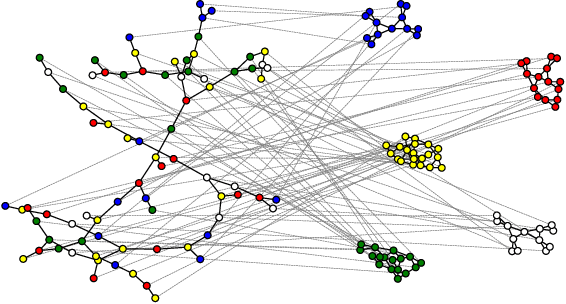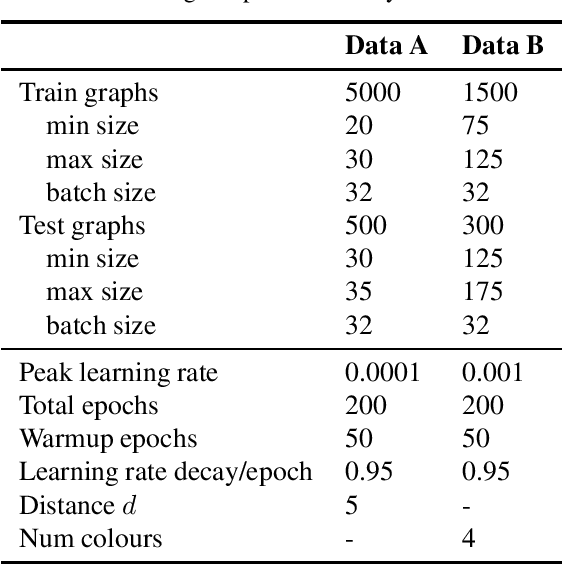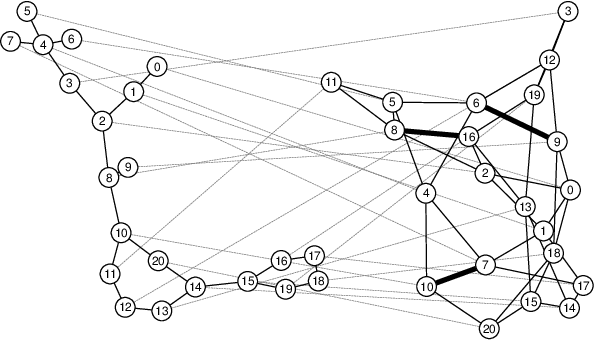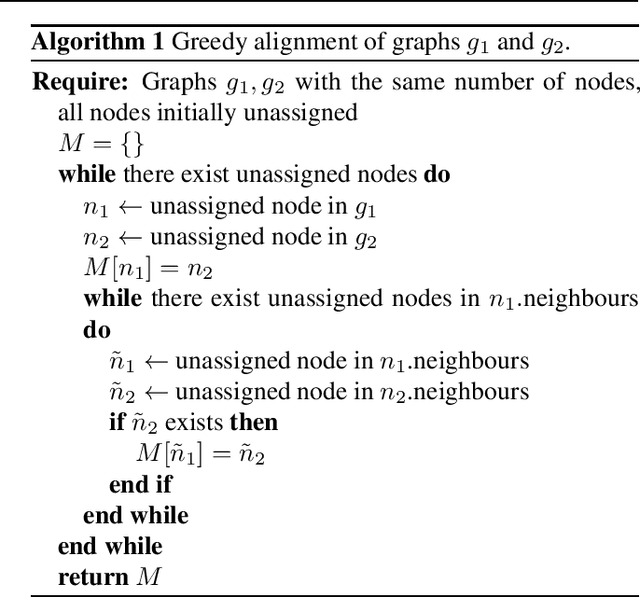Commute-Time-Optimised Graphs for GNNs
Paper and Code
Jul 09, 2024



We explore graph rewiring methods that optimise commute time. Recent graph rewiring approaches facilitate long-range interactions in sparse graphs, making such rewirings commute-time-optimal $\textit{on average}$. However, when an expert prior exists on which node pairs should or should not interact, a superior rewiring would favour short commute times between these privileged node pairs. We construct two synthetic datasets with known priors reflecting realistic settings, and use these to motivate two bespoke rewiring methods that incorporate the known prior. We investigate the regimes where our rewiring improves test performance on the synthetic datasets. Finally, we perform a case study on a real-world citation graph to investigate the practical implications of our work.
 Add to Chrome
Add to Chrome Add to Firefox
Add to Firefox Add to Edge
Add to Edge